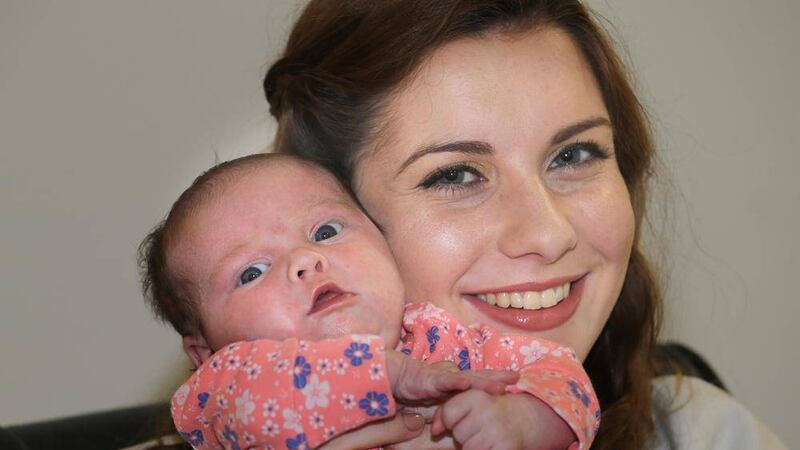THE number of babies born 'tongue-tied' is rising in Northern Ireland - with more than 500 cases treated in the past year.
Concerns about the condition, which can prevent newborns from breastfeeding, has prompted the health service to use the expertise of an oral surgeon who runs a dental surgery in Belfast.
Medically known as 'ankyloglossia', tongue-tie occurs when the skin that connects the tongue to an infant's mouth - the frenulum - is too short, causing the movement of the tongue to be restricted and preventing them from 'latching on' to breastfeed.
Turnaround for treatment at the Lisburn Road dental practice is extremely quick, with infants being seen within 24 to 48 hours of referral from a community midwife.
The procedure itself lasts minutes and causes little pain to the baby, due to the absence of nerve endings.
Dentist Martin Curran, who is also an oral surgeon, said numbers have soared since he starting receiving patients four years ago.
"Not every child who has a tongue-tie needs it snipped. There are different degrees of it. I will only treat when a mother has a problem breast feeding,” he said.
"If there was an issue 50 years ago, babies were given a bottle. But now we are trying to encourage more breast feeding so this can be one solution.
"I am the only oral surgeon to routinely do this in Belfast. It really is quite simple when you do it so often - but you do need to have some nerve to stick a pair of scissors into a two-day-old baby's mouth."
Mr Curran has treated 534 babies in the past year and says he does not have any waiting lists. The service he offers is free.
"Waiting lists of up to six weeks can occur in hospitals – by that time the mother may be too traumatised to continue breast feeding and will have given up."
North Belfast mother Katie Hughes (22) who gave birth to her little girl, Ruby, five weeks ago, learned immediately after delivery that her daughter had a severe form of the condition.
She was desperate to breastfeed but found it difficult because her newborn was unable to latch on properly - resulting in Katie experiencing severe pain and bleeding.
During a home visit when Ruby was just two-days old, a Belfast health trust community midwife referred her to Mr Curran.
"I really wanted to breastfeed but was crying with the pain after two days. The only way I can describe it is like someone holding a hot match to you as Ruby tried to latch on and feed," she said.
Katie and her daughter visited Mr Curran when she was three-days old.
"Myself and my partner took her in and it was all over in less than a minute. She was in no pain at all, she didn’t even cry.
"Since the procedure, I have been able to feed okay. But I think if this had been carried out immediately at the hospital then I wouldn’t have experienced the problems I did."
Katie, who was also born tongue-tied, underwent surgery when she was a toddler to have it corrected.
"I had to go under general anaesthetic and later required speech therapy," she added.
A spokeswoman for the Belfast Health Trust said: "Tongue-tie is not always picked up straight after delivery and often doesn't become apparent until a baby is not thriving. Referrals are often from health visitors and community midwives."




